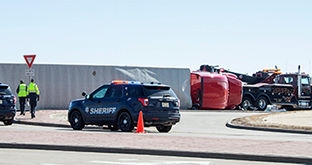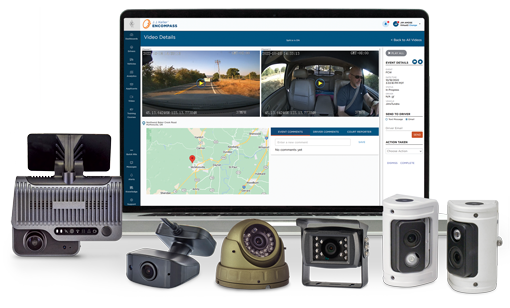Attorney — Marcello & Kivisto, LLC
The Critical Importance of Immediate Accident Response
Do's and Don'ts on Accident Response From Attorney Doug Marcello.
Published On: 01/17/2020


Written by:
Doug Marcello, Esq.
In my experience dealing with more than a thousand accidents, an immediate and effective response to an accident is crucial to protecting your company from the lawsuits that plague our industry. It’s more important now than ever before because of the advantage you can exploit that no big truck accident attorney can take away—immediacy. No one knows about that accident before you do.
The Eight Do’s and Don’ts of Accident Response
Maximize the advantage that immediacy provides by following this list of 8 do’s and don’ts:
1. DO have an emergency response plan. You must detail who in your company is responsible for specific duties.
2. DO determine who will be your response professionals—reconstructionist, attorney, etc. Know how to reach them anytime and anywhere and keep that list on you at all times.
3. DON’T take a statement from your driver. This is a common myth and one for which I get the most push back. Taking a statement only helps those who sue you. It will not be helpful at trial. Often times the driver’s perceptions in the moment of the accident are in conflict with the information from the unit (ECM data, hard brake info, and even, in-cab camera). Moreover, in the worst cases where criminal charges are in play, you will have deprived your driver of his constitutional right against self-incrimination.
4. DO have a checklist for your dispatcher or whoever takes the call about the accident. This person is “mission control” for a driver who has suffered the most emotionally traumatic incident of his professional life. The checklist should systematically take the driver through his/her on-scene responsibilities. For example:
- Check for injuries
- Secure the vehicle
- Place triangles or flares
- Take photos
- Identify witnesses
- Any other tasks as identified by your attorney.
5. DON’T take unnecessary drug and alcohol tests. The FMCSA requires testing in three instances—hearse, nurse, or a tow – and the last two only if a ticket is given. If it’s not required, don’t do it. You can unnecessarily jeopardize a defensible case. It is not required to prove the absence of alcohol and drugs. The trained police officer who investigates the accident and does not detect any indication of impairment will be your best witness.
6. DO search the immediate area of the accident for surveillance cameras. We live in a YouTube world. Juries expect there to be video and, if not, it didn’t happen. If there are any buildings in the area of your accident, check each for a surveillance camera. Ask for a copy of the video footage. If they refuse, ask if you can use your phone to take a video of the video. As a last resort, inform a police officer and ask them to take possession of the video.
7. DON’T determine “preventability” of serious accidents until the case is over. Your definition of preventable, process and determination could undermine your defense. (We’ll cover that in another blog.) You may want to limit it to the most serious accidents, such as DOT recordables. However, whatever you do, make sure that you are consistent.
8. DO consider suing the other driver if the fault of the accident is debatable and you have suffered damage to your unit or cargo. This can be important for several reasons:
- You get the jump on the billboard attorneys by being able to conduct discovery, subpoena records, and can potentially win your case and preclude their suit.
- In many states, you can lock in jurisdiction in the court where the accident occurred rather than being dragged into a “plaintiff-friendly” jurisdiction.
Prepare Now
In today’s hard insurance market, many companies need to have a significant deductible. The dollars you save go right to your company’s bottom line, so you need to be ready to protect yourself. Your immediate and effective response to an accident will make all the difference in your case.
About the Author
Doug B. Marcello is a trucking defense attorney and a transportation defense attorney with 30+ years of trial experience. His knowledge of the trucking industry allows him to represent trucking companies in Central Pennsylvania and throughout the country. Doug is a CDL holder and is an active member of: TIDA, TLA, CTLA, ATA (Safety), TCA, PMTA, NYMTA, NJMTA, and OTA.
Free Crash Preventability Education Resource
FMCSA announced that carriers and drivers can use DATAQs to challenge the preventability of certain crashes that occurred August 1, 2019, or later. J. J. Keller's two-page Educational Handout will give you a better understanding of this new program and if your accident meets the review requirements. Free download.
You may also enjoy the following articles:
Sign up for our newsletter!
We'll help you stay on top of regulations, best practices, and fleet industry news. Sign up to receive a monthly email notification with links to our most recent blog articles, free resources, and event invites.
